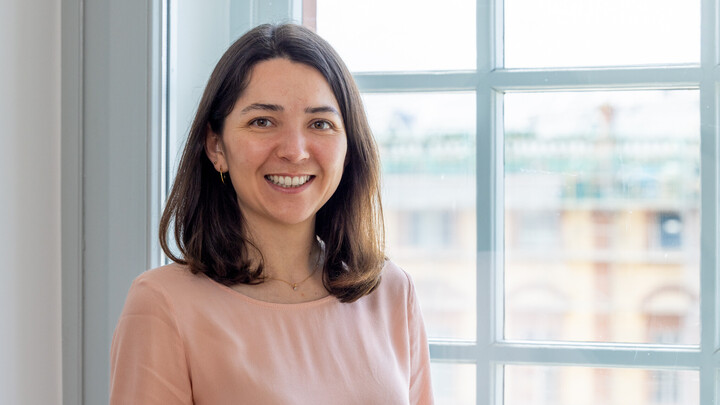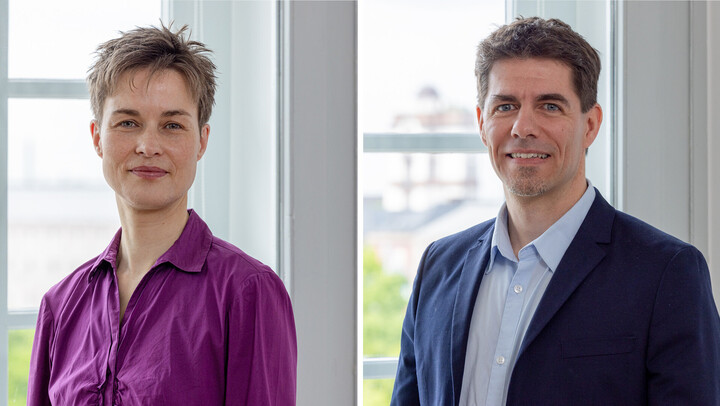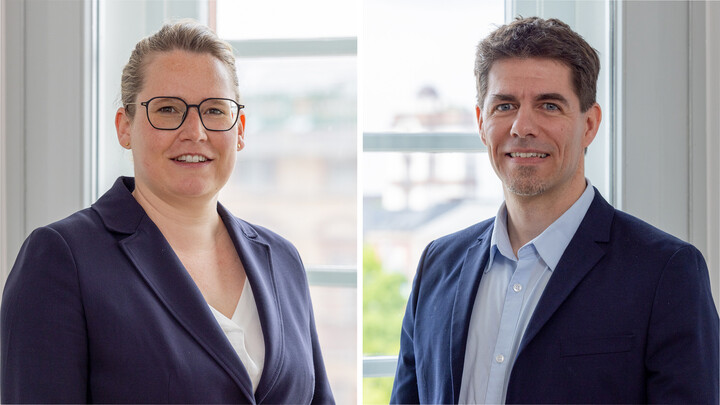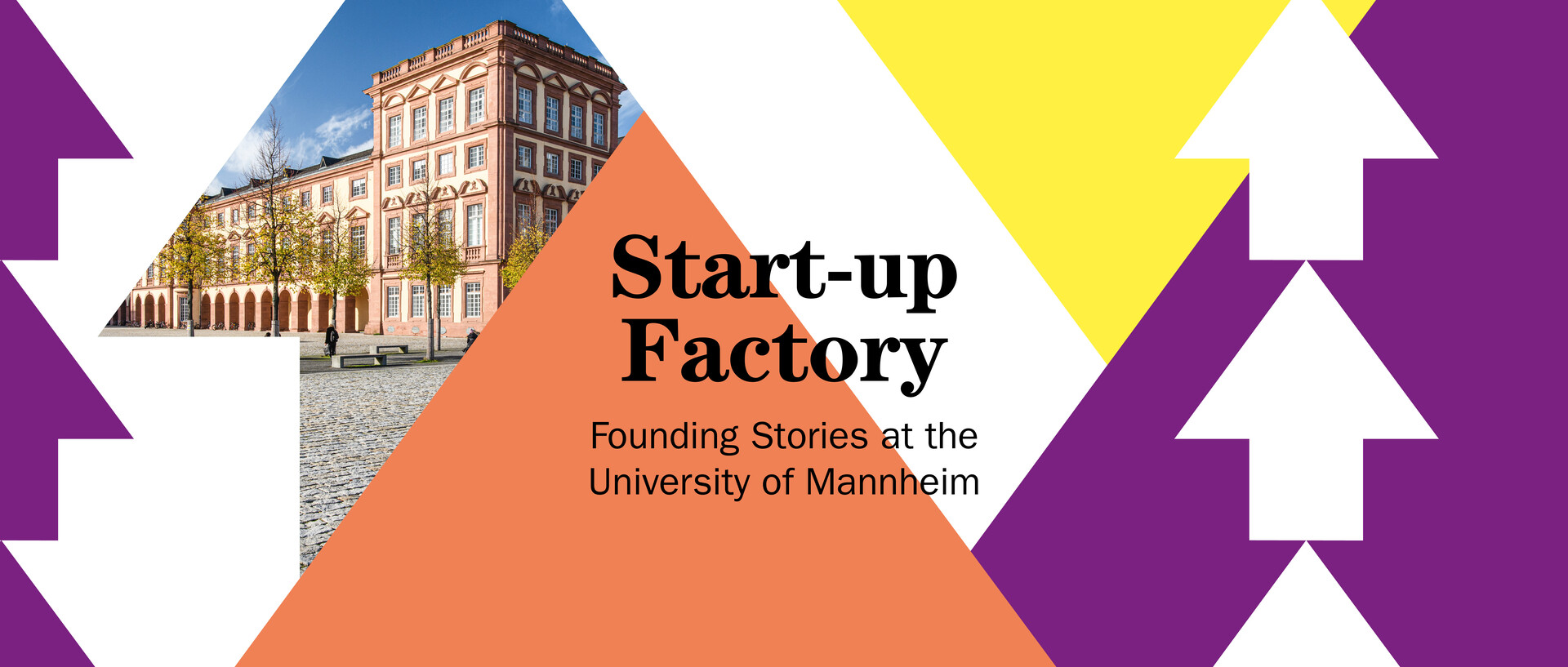Three Questions for …
Entrepreneurship plays a major role not just in business but also in research. At the University of Mannheim’s Institute for SME Research (ifm), scholars focus on three key aspects of entrepreneurship: the individuals behind start-ups, their business ventures, and the broader environment in which these ventures operate. In this section, we introduce three current research projects from the ifm.

Erika Ni
Function: Academic Staff Member and Research Associate
Title of the research project: A Qualitative Investigation of Entrepreneurs‘ Coping with Adversity
1. What is your research project about?
I study how entrepreneurs handle the emotional challenges of starting a business. These challenges include difficult funding rounds, uncertainty about whether an idea will succeed in the market, and the responsibility for their team’s well-being—all of which can be emotionally taxing. I analyze the strategies entrepreneurs use to navigate these situations and examine the factors that influence their choice of coping mechanisms.
2. Why is this topic important?
Start-ups are often portrayed as heroic success stories, but the reality is quite different. Many founders experience intense pressure, which can negatively impact both their mental health and their business success. Given the increasing importance of start-ups to the economy, it is crucial to understand how entrepreneurs can sustain their efforts long-term while maintaining their well-being. This knowledge can benefit not only entrepreneurs themselves but also improve advisory services and support programs tailored to their needs.
3. What have you discovered so far?
Preliminary findings show that entrepreneurs react in different ways. Some try to overcome every challenge by working harder and longer, but this approach is rarely sustainable. Others manage to step back, tackle problems strategically, and adopt healthier coping strategies. One of the most effective methods is connecting with fellow entrepreneurs, as this helps normalize setbacks and foster new perspectives. With my research, I hope to contribute to the development of healthy and effective approaches for handling the ups and downs of entrepreneurship.

Dr. Bettina Müller and Dr. Christoph Sajons
Functions: Academic Staff Member and Head of the “Labor Market” Research Team
Title of the research project: Resilience of SMEs and Public Support Measures in Times of Crises – The Case of Ukraine
1. What is your research project about?
Our project examines a support program for small and medium-sized enterprises in Ukraine that have been affected by the Russian invasion. A key focus is on the impact of microgrants of up to €4,000 awarded to microbusinesses with up to nine employees. We aim to assess whether the grants were distributed quickly and cost-effectively, and to what extent they actually benefited the recipient businesses.
2. Why is this topic important?
Since February 2022, Russia’s full-scale invasion of Ukraine has severely disrupted the country’s economy. Self-employed individuals and small businesses have been affected in numerous ways. Germany, the EU, and other international partners have launched support programs to help Ukrainian businesses withstand the crisis and lay the groundwork for future reconstruction. However, since funding is limited, it is crucial to examine whether these resources are being spent wisely and achieving the greatest possible impact per euro invested.
3. What have you discovered so far?
Our findings so far suggest that the support program has been largely well implemented—though the grant distribution process could be accelerated. Additionally, we see that the program has helped microbusinesses continue their operations despite extremely challenging circumstances. However, we cannot yet determine whether this is the most effective way to support Ukraine’s economy in the long term.

Carina Hartmann and Dr. Christoph Sajons
Functions: Academic Staff Member and Head of the “Labor Market” Research Team
Title of the research project: Boost or Penalty? The Effect of Entrepreneurial Experiences on Subsequent Employment Prospects of Immigrants
1. What is your research project about?
We examine how entrepreneurial and self-employment experience in Germany affects the future job prospects of migrants. To do this, we conducted a nationwide field experiment, submitting 1,160 fictional job applications from migrants while varying whether they had previously been self-employed, in regular employment, or unemployed. By analyzing employer responses, we measured how different applicant backgrounds influenced hiring decisions.
2. Why is this topic important?
Entrepreneurship is an important pathway for migrants to enter the labor market, as it can help bypass systemic barriers—such as the recognition of foreign occupational qualifications. However, most start-ups are eventually sold or closed. That’s why it’s crucial to understand how entrepreneurial experience is perceived when migrants apply for regular employment after running their own businesses.
3. What have you discovered so far?
Our findings show that self-employment experience is not “penalized” in migrant job applications as previous research has suggested for other former entrepreneurs. In fact, former migrant entrepreneurs are significantly more successful in the job market than migrants who were unemployed for the same period. This suggests that entrepreneurial experience does not mark the end of career opportunities for migrants—on the contrary, it can be a valuable asset when transitioning into regular employment and advancing social mobility.
Edited by: Jessica Scholich / April 2025
